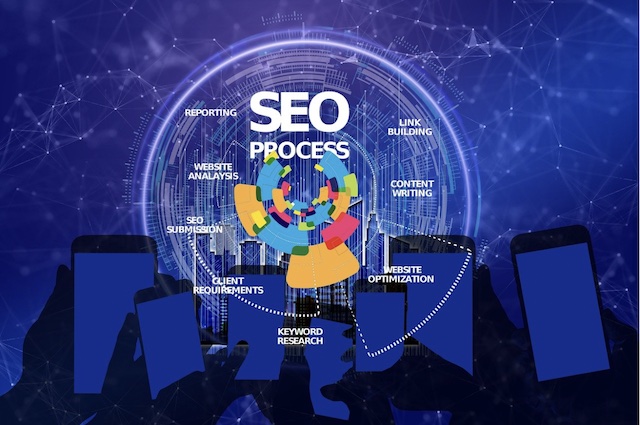April 24 (News about Japan) – Creating a robust and comprehensive digital marketing plan specifically tailored to Business-to-Business (B2B) companies is not only advisable; it is imperative for achieving sustainable growth and maintaining a competitive advantage in today’s fast-paced business environment.
With the proliferation of digital channels and changing preferences of B2B buyers, having a well-thought-out strategy is essential for effectively reaching and engaging your target audience.
In this guide, we’ll take a closer look at the top 5 strategies for creating a digital marketing plan that drives results for B2B companies.
1. Targeted content marketing:
Content marketing has long been hailed as one of the most effective strategies for B2B lead generation and customer acquisition. However, in today’s saturated digital landscape, generic content simply doesn’t cut it. To stand out from the crowd and capture the attention of your target audience, you need to embrace targeted content marketing.
Targeted content marketing involves creating and distributing content specifically tailored to the needs, pain points, and interests of your ideal customers. Instead of taking a one-size-fits-all approach, segment your audience based on factors such as industry, job title, company size, and stage in the buying cycle, then create content that speaks directly to each person’s unique challenges. segment. and priorities.
For example, if you’re a software company targeting healthcare HR professionals, you can create content that addresses common HR challenges in healthcare, such as compliance issues, talent retention, and workforce management. By providing valuable insights and solutions to these specific pain points, you can position your brand as a trusted advisor and build credibility with your target audience.
2. Use account-based marketing (ABM):
Account-Based Marketing (ABM) is a strategic approach that focuses on targeting and engaging specific accounts or companies, rather than casting a wide net and hoping to attract leads. ABM involves identifying high-value target accounts, understanding their needs and challenges, and then tailoring your marketing efforts to resonate with key decision makers within those accounts.
One of the key benefits of ABM is its ability to deliver highly personalized and relevant messages to your target accounts, which can significantly increase engagement and conversion rates. By taking a more targeted and strategic approach to your marketing efforts, you can ensure that you allocate your resources effectively and focus your efforts on the accounts that are most likely to generate revenue for your business.
To implement an effective ABM strategy, work closely with your sales team to identify target accounts, develop personalized messaging and content, and coordinate your marketing and sales efforts to ensure a seamless experience for your prospects. By aligning your marketing and sales teams around common goals and objectives, you can maximize the impact of your ABM efforts and achieve measurable results for your business.
3. Optimize for Search Engines (SEO):

In today’s digital age, the vast majority of B2B purchasing journeys start with a search engine. Whether researching potential solutions, comparing different suppliers, or searching for reviews and recommendations, B2B buyers rely heavily on search engines to make purchasing decisions. That’s why a strong presence on search engine results pages (SERPs) is essential for B2B companies looking to attract and engage potential customers.
Search engine optimization (SEO) is the process of optimizing your website and content to rank higher in search engine results for relevant keywords and phrases. By optimizing your website’s technical structure, creating high-quality and relevant content, and earning authoritative backlinks from other websites, you can improve your visibility in search engine results and drive organic traffic to your site.
When developing an SEO strategy for your B2B business, it’s important to conduct thorough keyword research to identify the terms and phrases your target audience is searching for. Look for keywords with high search volume and low competition, as well as long-tail keywords that are very specific to your industry or niche. Then optimize your website and content around those keywords, making sure they appear in your page titles, headlines, meta descriptions, and body copy.
In addition to on-page SEO tactics, it is also important to focus about off-page SEO strategies, such as link building and social media engagement. By earning high-quality backlinks from reputable websites and engaging with your audience on social media platforms, you can improve your website’s authority and credibility in the eyes of search engines, leading to higher rankings and increased visibility of your contents.
4. Harness the power of social media:

While B2B companies may not rely on social media as heavily as their B2C counterparts, platforms like LinkedIn, Twitter, and Facebook can still be valuable tools for reaching and engaging with your target audience. According to an IDC survey, 75% of B2B buyers and 84% of C-level executives use social media to make purchasing decisions.
One of the key benefits of social media for B2B marketing is its ability to facilitate thought leadership and establish your brand as a trusted authority in your industry. By sharing valuable insights, industry news, and thought-provoking content with your audience, you can position your company as a central source for information and expertise in your niche.
In addition to thought leadership, social media can also be a powerful platform for driving engagement and building relationships with your target audience. By actively participating in relevant conversations, responding to comments and questions, and sharing user-generated content, you can foster a sense of community around your brand and deepen your connections with potential customers.
Another important aspect of social media marketing for B2B companies is social media advertising. Platforms like LinkedIn offer robust advertising solutions that allow you to target specific demographics, job titles, industries, and even individual companies with your ads. Using social media advertising can help you expand your reach, drive targeted traffic to your website, and generate leads for your business.
5. Invest in marketing analytics:
To effectively measure the success of your digital marketing efforts and make data-driven decisions, it is essential to invest in marketing analytics tools. By tracking key metrics such as website traffic, conversion rates, and customer acquisition costs, you can gain valuable insights into the effectiveness of your campaigns and identify areas for improvement.
One of the key benefits of marketing analytics is its ability to provide insight into the entire customer journey, from the first touchpoint to the final conversion. By analyzing data from multiple channels and touchpoints, you can gain a holistic understanding of how your customers interact with your brand and tailor your marketing efforts accordingly.
In addition to tracking Key Performance Indicators (KPIs), marketing analytics can also help you identify trends and patterns in your data so you can make informed decisions about where to deploy your resources and which strategies to prioritize. For example, if you notice that a particular channel or campaign is generating a high number of leads at a low cost per acquisition, you can invest more resources into scaling that campaign and maximizing its impact.
Conclusion:
Creating a successful digital marketing plan for B2Bs requires a combination of strategic thinking, creativity and data-driven decision making. By implementing these top 5 strategies – targeted content marketing, account-based marketing, search engine optimization, social media engagement and marketing analytics – B2B companies can effectively reach their target audience, generate leads and drive growth in today’s competitive landscape. By embracing these strategies and adapting them to your unique business goals, you can position your B2B company for long-term success in the digital age.



